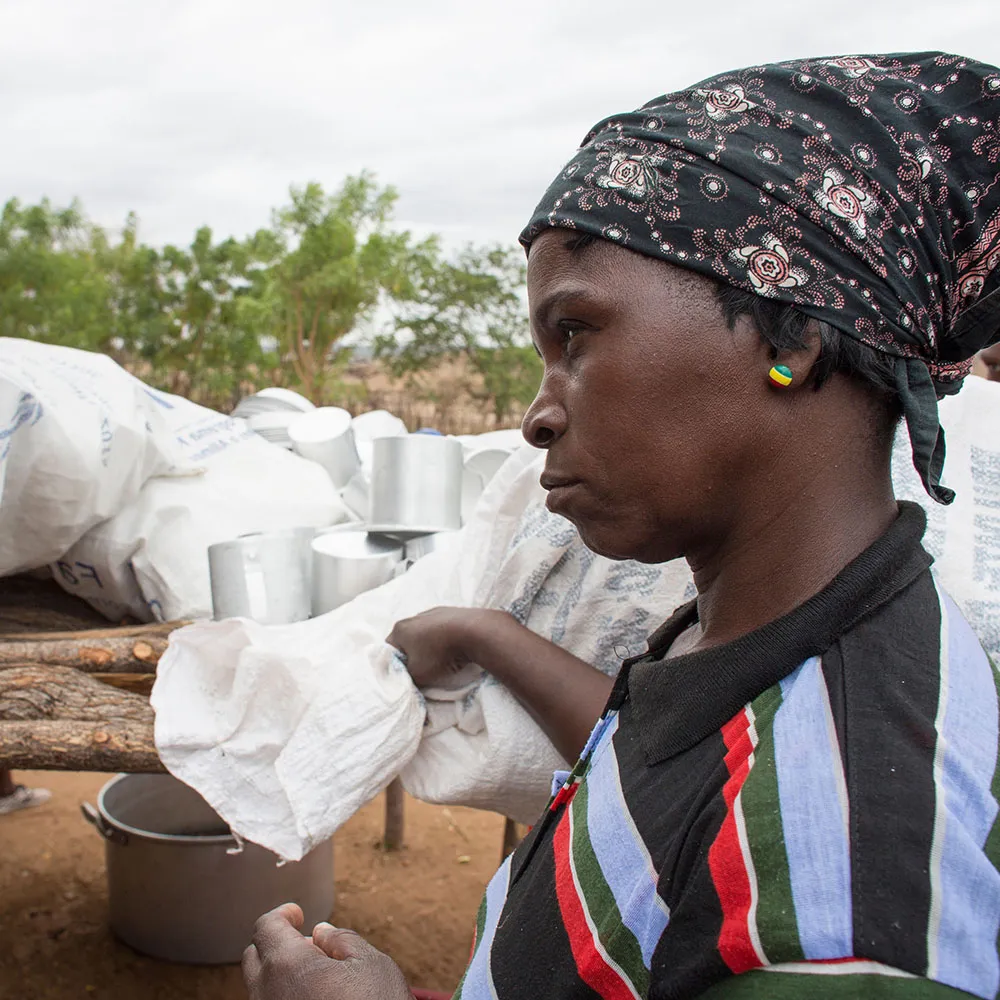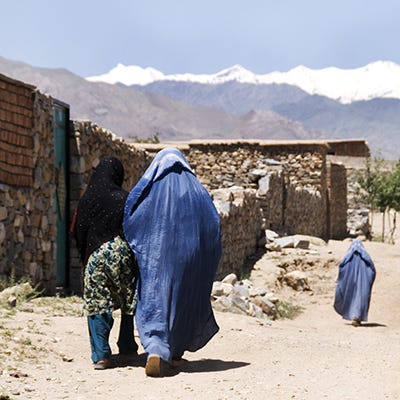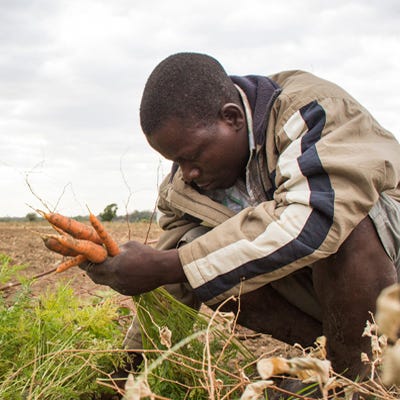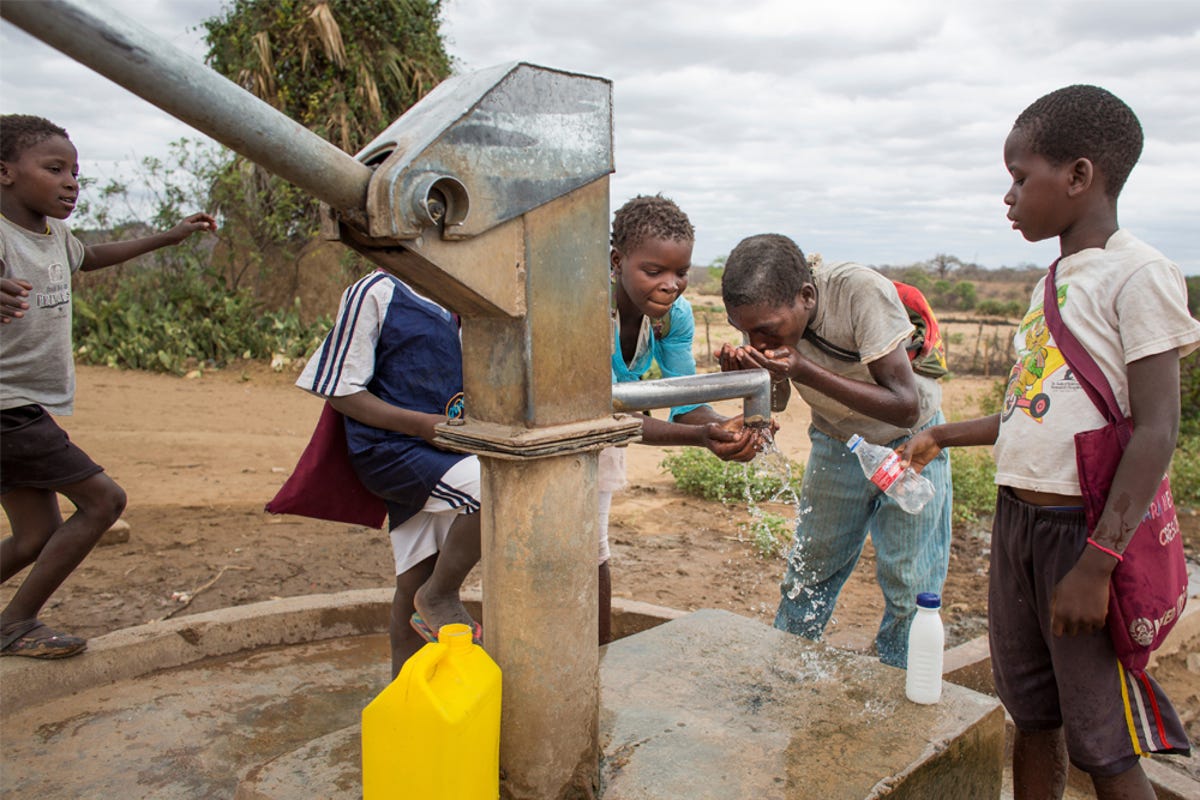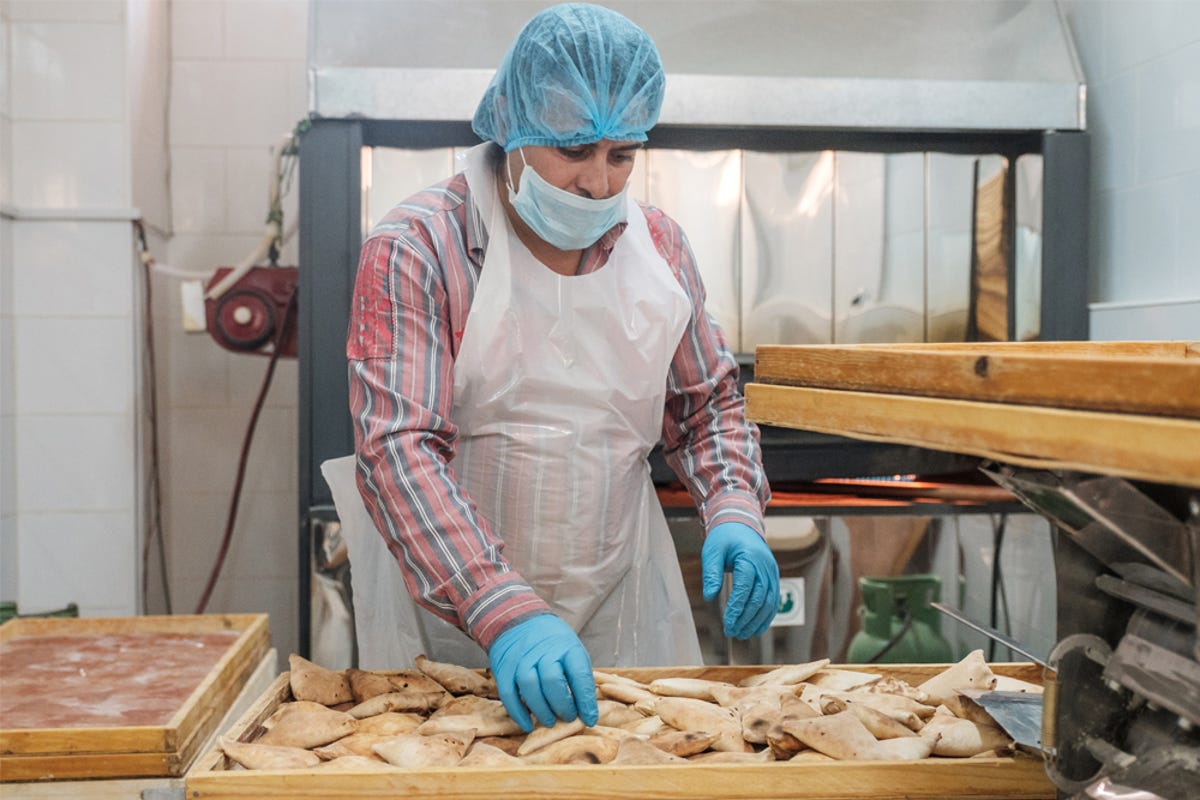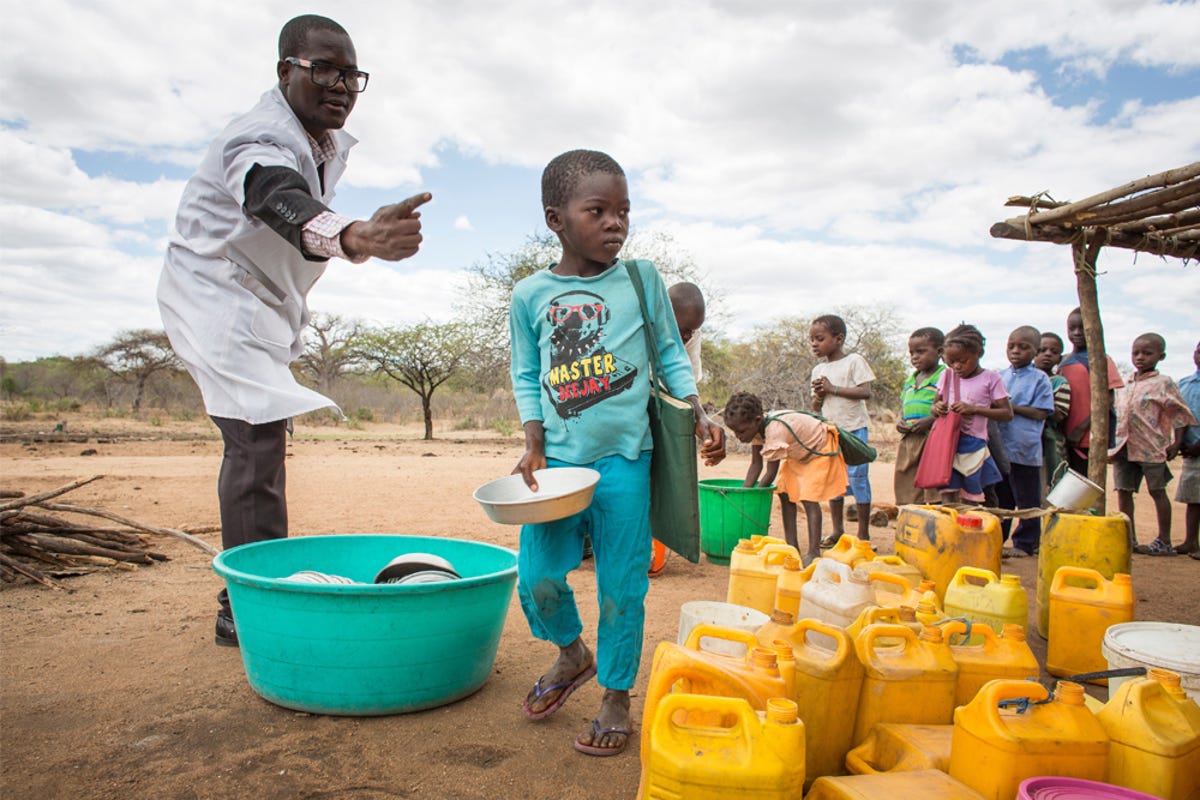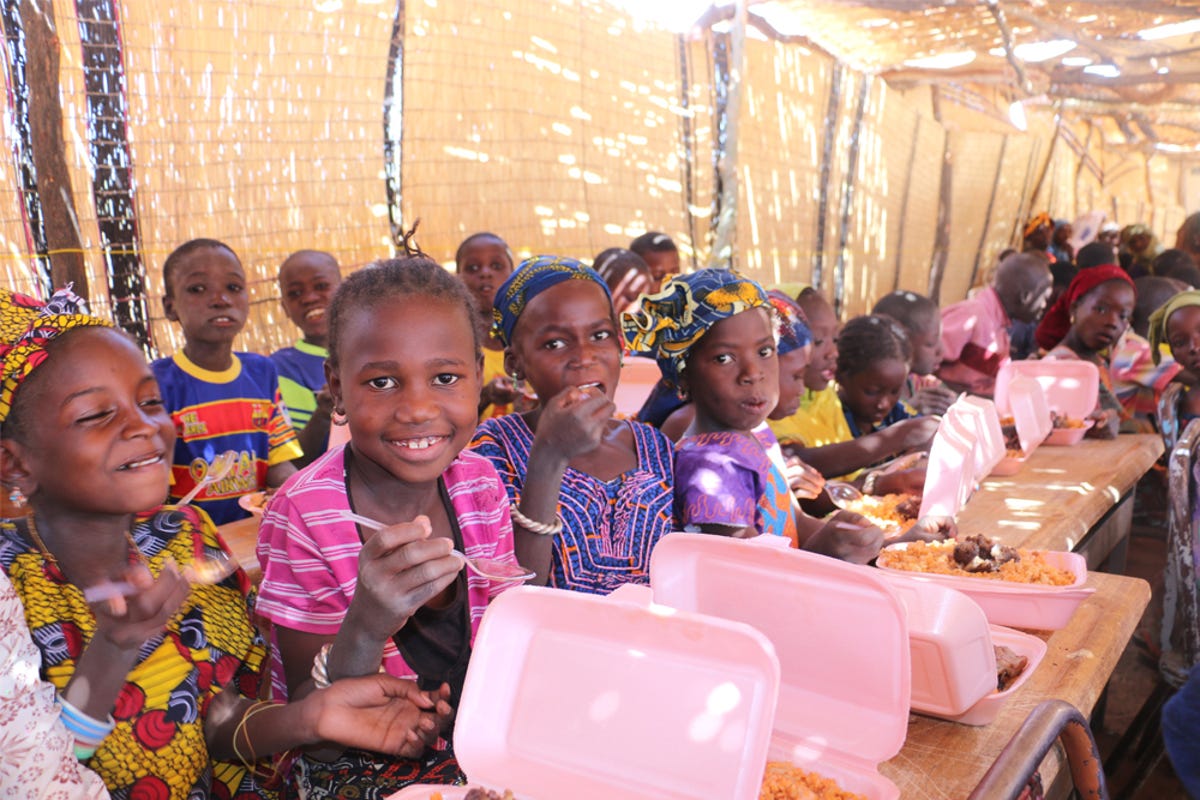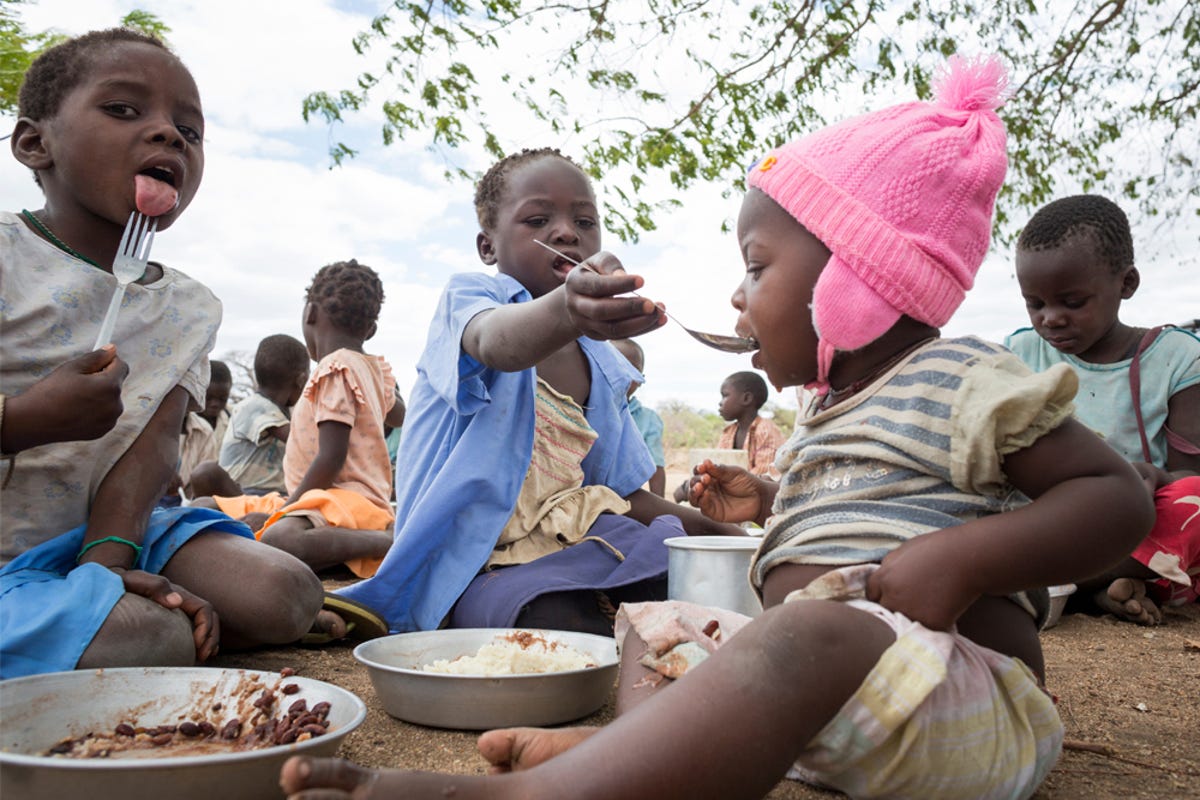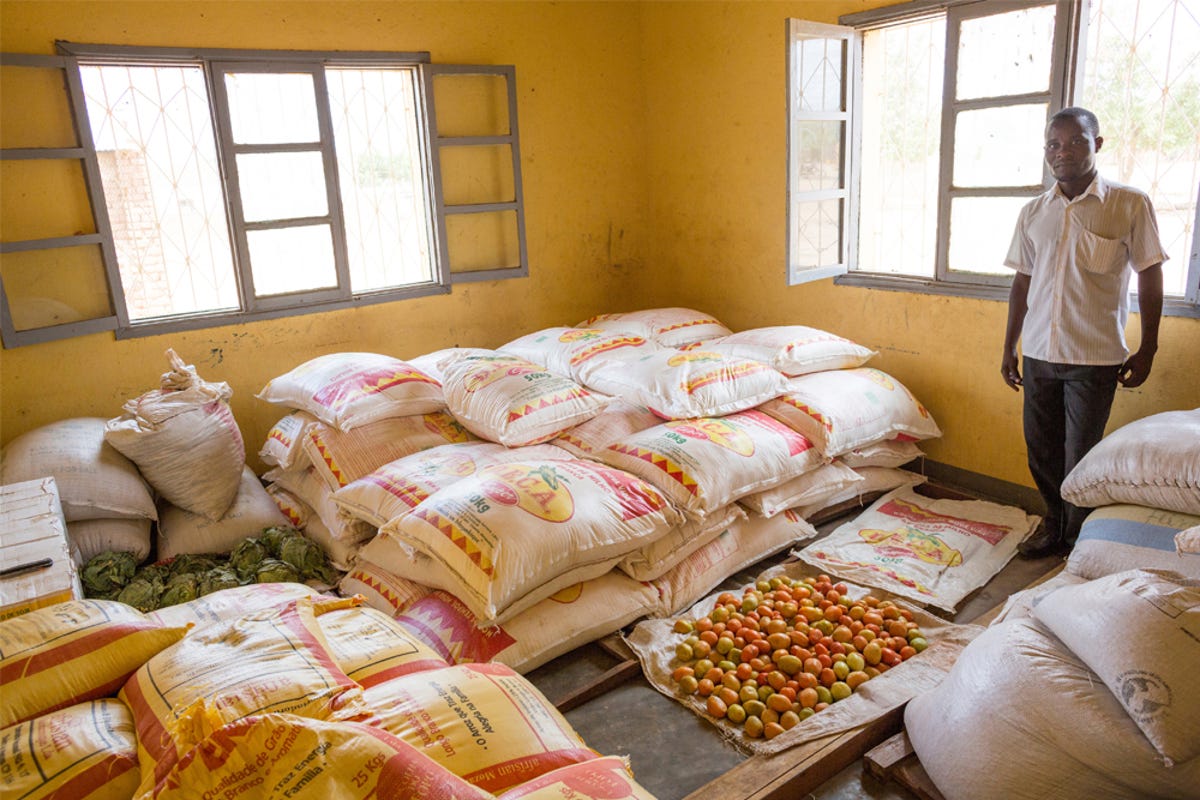2014-2021
SCHOOL MEALS FOR NUTRITION AND LEARNING
© WFP / Pierre Diou

2014-2021
WORLD FOOD PROGRAMME
The World Food Programme (WFP) is the world’s largest humanitarian organisation, saving lives in emergencies and using food assistance to build a pathway to peace and prosperity. In 2022, WFP reached 160 million people in over 120 countries and territories. We funded WFP’s School Meals Programme across Africa and the Middle East from 2014 until 2021. We’ve also supported WFP in Mozambique since 2014, initially focusing on setting up a nationally owned school meals programme for all pre-primary and primary schools across the country. Since 2017, we’ve been funding WFP’s work to provide post-harvest-loss solutions for smallholder farmers. In 2022, we funded the organisation’s food and nutrition assistance operations in Afghanistan and Pakistan. Today, we’re helping WFP reach vulnerable communities affected by hunger, conflict, and climate shocks across the Horn of Africa.
CHALLENGE
© Cartier Philanthropy / Andrea Borgarello
ACTION
WFP has six decades of experience setting up sustainable national school feeding programmes where they are most needed.
For seven years, we supported WFP to develop and implement home-grown school feeding programmes in pre-primary and primary schools in Burkina Faso, Burundi, and Mozambique. In addition to the hot meals, WFP provided technical support to the schools, the local authorities, and communities. WFP teams trained teachers in nutrition education, assisted school councils in the set up and management of canteens, and linked schools and local smallholder farms for fresh food sourcing and delivery.
In Jordan in 2018, WFP set up an innovative school meals initiative called ‘Healthy Kitchens’ to address the multiple challenges of the protracted refugee crisis. Healthy Kitchens ensured Jordanian and Syrian schoolchildren received freshly prepared meals, encouraging them to attend class and keeping them away from child labour. At the same time, the initiative also provided employment for the Syrians and Jordanians who prepared, baked and packed the school meals -– 60% of them women.
STUDENTS
ate a hot meal each day in Burkina Faso, Burundi and Mozambique between 2014 and 2017
SCHOOLS
set up a regular school meal programme in Burkina Faso, Burundi and Mozambique between 2014 and 2017
ATTENDANCE RATE INCREASE
was achieved in schools involved in the programme in Burundi
CHILDREN
In 280 state schools received school meals in Jordan between 2018 and 2021 thanks to the Healthy Kitchens programme

